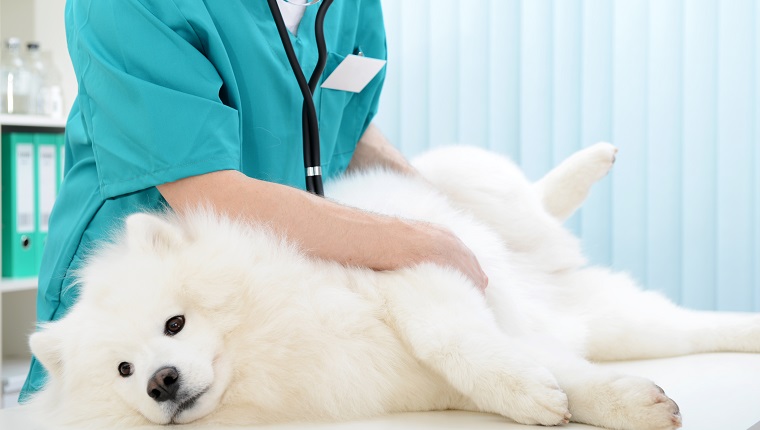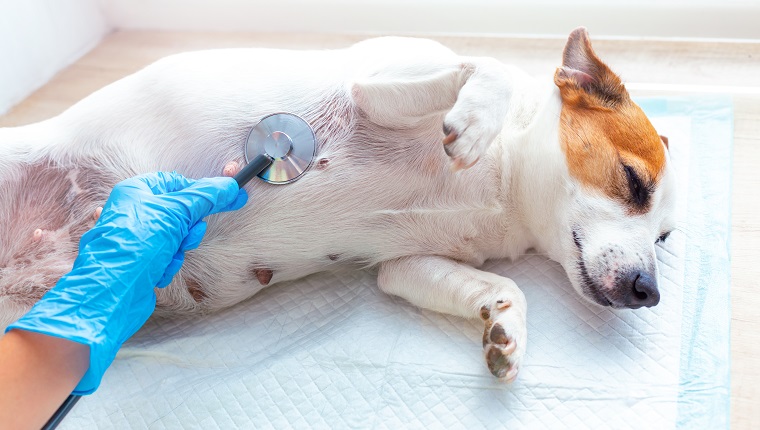Metritis in dogs is a condition that involves the lining of a dog’s uterus swelling after she contracts a bacterial infection. It usually takes place a week or so after a dog has given birth.
This is a serious issue that a veterinarian must treat; otherwise, there’s a chance that septic shock might set in, and it might become a life-threatening condition.
If you see signs that your dog might be suffering from complications after giving birth, then you must consult your veterinarian for a proper diagnosis and course of treatment. Here’s what you should know about the symptoms, causes, and treatments of metritis in dogs.
Symptoms Of Metritis In Dogs
Metritis in dogs can result in a range of symptoms. Some of the most common general symptoms include:
- Discharge from the vaginal area
- Registering a fever
- Loss of appetite
- Starting to neglect any puppies
- Decreased production of milk
- Swollen abdomen
Causes Of Metritis In Dogs

Metritis in dogs primarily results from contracting the bacteria Escherichia coli.
Some of the other contributing causes include:
- A prolonged or complicated birthing process
- Miscarriage or abortion
- Artificial insemination
Treatments For Metritis In Dogs
If you think that your dog is suffering from metritis, your veterinarian will want to carry out a full physical examination. They’ll order blood and urine tests as part of the process, along with an analysis of your dog’s electrolytes.
In some cases, vets can additionally use ultrasound imagery confirm a diagnosis. Any discharge from the dog’s vagina can also be sent for analysis to verify a case.
Treatment usually begins with the use of fluid therapy designed to restore the balance of electrolytes in the body. In cases where sepsis has developed, vets can also use treatments for shock.
In most cases, vets prescribe antibiotics to help with recovery from the condition. As ever, if your vet prescribes medication for your dog, it is vital that you stick to the recommended frequency and dosage instructions, along with completing the full course of medicine.
While your dog recovers at home, vets advise hand-raising any puppies. This is so that there is no risk of a mother dog passing on an infection to their pups.
Have you ever cared for a mama dog who developed metritis? How did your vet help with treatment? Tell us all about it in the comments below.




